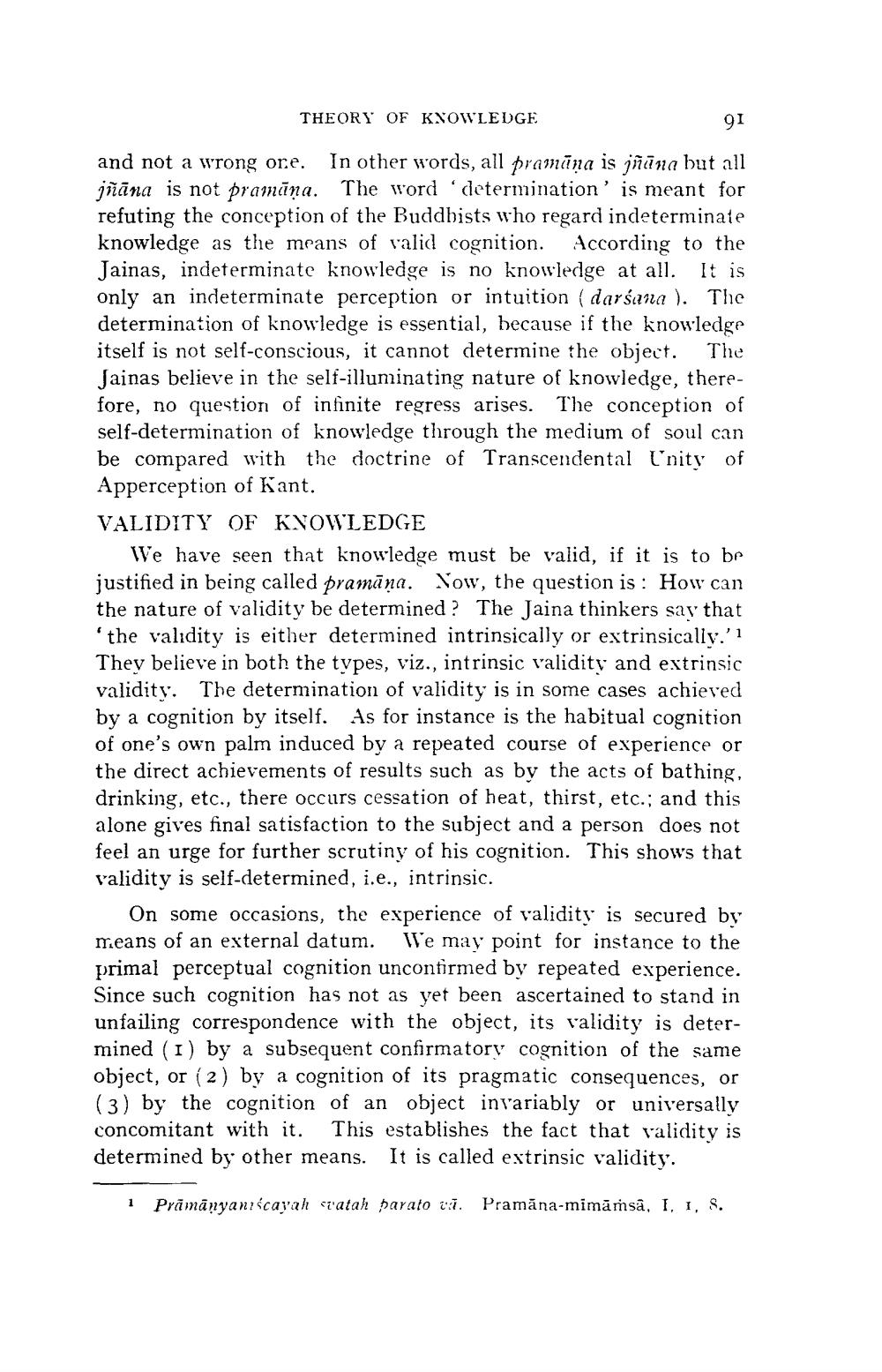________________
THEORY OF KYOWLEDGE
91 and not a wrong ore. In other words, all pramūna is iñūna but all jñāna is not pramūna. The word 'determination' is meant for refuting the conception of the Buddhists who regard indeterminate knowledge as the means of valid cognition. According to the Jainas, indeterminate knowledge is no knowledge at all. It is only an indeterminate perception or intuition (darśana ). The determination of knowledge is essential, because if the knowledge itself is not self-conscious, it cannot determine the object. The Jainas believe in the self-illuminating nature of knowledge, therefore, no question of infinite regress arises. The conception of self-determination of knowledge through the medium of soul can be compared with the doctrine of Transcendental l'nity of Apperception of Kant. VALIDITY OF KNOWLEDGE
We have seen that knowledge must be valid, if it is to be justified in being called pramāna. Now, the question is: How can the nature of validity be determined? The Jaina thinkers say that 'the validity is either determined intrinsically or extrinsically.' 1 They believe in both the types, viz., intrinsic validity and extrinsic validity. The determination of validity is in some cases achieved by a cognition by itself. As for instance is the habitual cognition of one's own palm induced by a repeated course of experience or the direct achievements of results such as by the acts of bathing, drinking, etc., there occurs cessation of heat, thirst, etc.; and this alone gives final satisfaction to the subject and a person does not feel an urge for further scrutiny of his cognition. This shows that validity is self-determined, i.e., intrinsic.
On some occasions, the experience of validity is secured by means of an external datum. We may point for instance to the primal perceptual cognition unconfirmed by repeated experience. Since such cognition has not as yet been ascertained to stand in unfailing correspondence with the object, its validity is determined ( 1 ) by a subsequent confirmatory cognition of the same object, or ( 2 ) by a cognition of its pragmatic consequences, or (3) by the cognition of an object invariably or universally concomitant with it. This establishes the fact that validity is determined by other means. It is called extrinsic validity.
1 Prīmānyanıscayah Tatah parato ci. Pramăna-mimāṁsâ, I, 1, 8.




